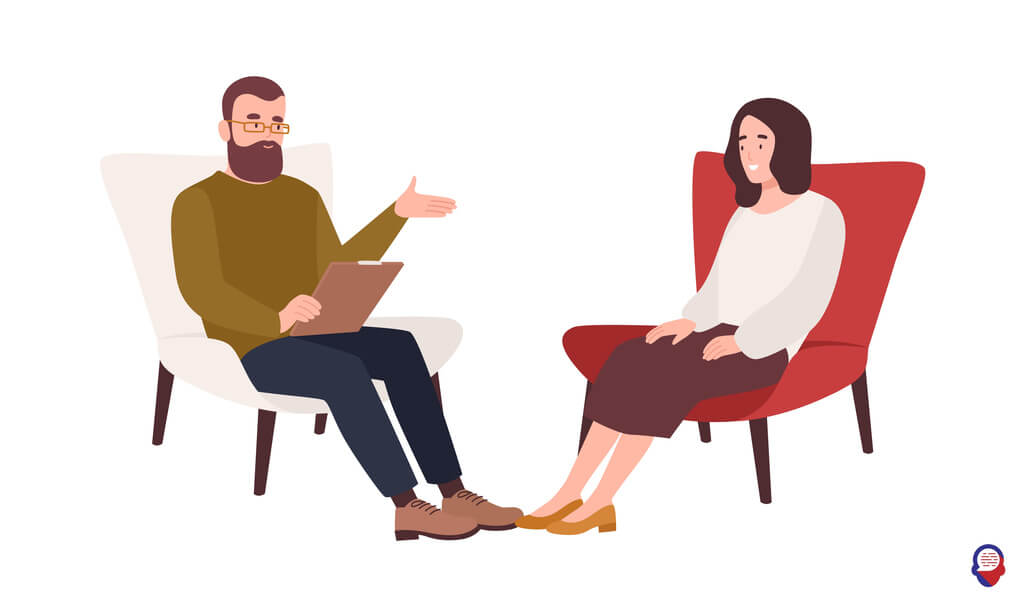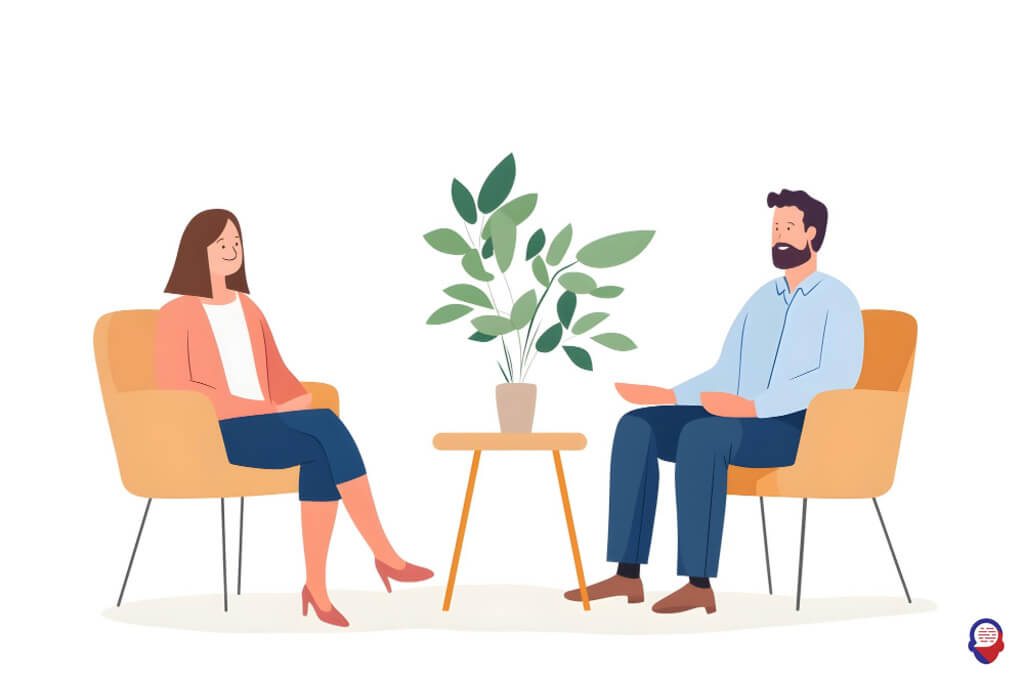Reconnecting Your Marriage: The Ultimate Guide to Couples Counselling
It often begins not with a bang, but with a whisper. A quiet drift. The conversations that once flowed for hours now barely fill the space between television adverts. Before you know it, the person you promised to cherish feels more like a roommate, a co-parent, or a stranger sharing your home. This growing distance, punctuated by familiar arguments or a deafening silence, is a painful and lonely place to be.
You remember the beginning, the laughter, the shared dreams. Now, you’re left wondering, is this it? Is this what marriage becomes? For countless couples standing at this very crossroads, the path forward feels shrouded in fog. But there is a path, a structured and supportive way to find each other again. This is a comprehensive guide to understanding that path, the path of marriage counselling.

What Exactly Is Marriage Counselling?
Marriage counselling is a specialised form of psychotherapy designed to help couples identify and resolve conflicts to improve their relationship. It is a proactive, collaborative process facilitated by a trained, neutral professional in a safe and confidential environment.
Think of a counsellor not as a judge who declares a winner and a loser, but as a guide or a coach. Their role is to provide you both with the tools, insights, and communication strategies you may have lost or perhaps never learned. It’s a space dedicated entirely to the health of your relationship, away from the distractions and pressures of daily life. The goal isn’t to assign blame, but to foster understanding and create a new, healthier way of relating to one another.

Why Should We Consider Counselling?
You should consider counselling when the patterns of interaction in your marriage are causing persistent distress, and your own attempts to fix them have not been successful. It is a sign of strength, not weakness, to seek expert guidance when the health of your most important relationship is at stake.
Many couples wait until a crisis point, viewing counselling as a last resort. However, it is most effective when approached as a form of preventative maintenance or as an early intervention. If you feel stuck, unheard, or perpetually unhappy, counselling provides the structure needed to address the root causes before they become insurmountable. It’s an investment in your shared future.

Is Constant Arguing a Sign We Need Help?
Yes, if your arguments are cyclical, destructive, and leave you feeling more disconnected, it is a clear sign that you need help. This is especially true if you find yourselves having the same fight over and over again with no resolution.
All couples argue, but it’s the way you argue that matters. When disagreements escalate into personal attacks, contempt, shouting, or stonewalling (one partner shutting down completely), you are in a damaging cycle. A counsellor can help you de-escalate conflict and teach you how to argue constructively, so that disagreements become opportunities for understanding, not weapons for hurting each other.

What If We Don’t Argue, But Feel Distant?
A lack of conflict can be just as dangerous as constant fighting, and it is a powerful reason to seek counselling. This emotional distance, often described as the "roommate phase," signals a deep disconnection that can erode the foundations of a marriage.
Silence and avoidance are often symptoms of unresolved hurts or a fear of vulnerability. You may have stopped sharing your true feelings to avoid a fight, leading to a slow and silent drift. Counselling provides a safe space to break that silence, to explore the reasons for the distance, and to learn how to safely reconnect emotionally and physically without fear of rejection.

Can Counselling Help After an Affair?
Yes, counselling can be an essential lifeline for a marriage reeling from the trauma of an affair. The discovery of infidelity shatters trust and creates a crisis that is incredibly difficult, and often impossible, to navigate alone.
A trained therapist provides a structured process to manage the intense emotions of betrayal, anger, and guilt. They facilitate the difficult conversations that need to happen, helping the betrayed partner process their pain and helping the unfaithful partner understand the impact of their actions. While it cannot guarantee the marriage will survive, it offers the best possible chance for genuine healing, rebuilding trust, and deciding on a future, whether together or apart.

What About Major Life Changes?
Major life changes, even positive ones, are significant stressors that can destabilise a marriage, making counselling a valuable tool for navigation. Events like the birth of a child, a job loss, retirement, or moving to a new city fundamentally alter your roles and routines.
These transitions can expose hidden cracks in your relationship. The sleep-deprived parents of a newborn may find their connection strained, while a couple facing an empty nest may realise they no longer know how to relate to each other without children as a buffer. Counselling helps you adapt as a team, communicate through the stress, and redefine your partnership in the face of your new reality.

Are We Just Stuck in a Rut?
Feeling stuck in a rut is a very common and valid reason to seek marriage counselling. When your relationship feels monotonous, predictable, and devoid of joy or spontaneity, it’s a sign that your connection needs revitalising.
Ruts happen when we stop being intentional about our partnership and fall into autopilot. Counselling can shake things up in a positive way. It encourages you to look at your partner with fresh eyes, break out of boring routines, and rediscover the shared interests and passions that first brought you together. It’s about actively co-creating a more vibrant and fulfilling next chapter.

What Can We Expect During a Session?
You can expect a structured conversation guided by a professional who will work to ensure both partners feel safe and heard. The first session is typically about gathering history, understanding the core problems, and establishing goals for your work together.
The counsellor will set ground rules for communication to prevent the session from devolving into a typical argument. They will listen to both of your perspectives on the issues at hand. It’s a process of discovery, where you begin to see the patterns and dynamics that have been holding you captive. You should leave even the first session with a sense of cautious optimism, feeling that you were truly listened to, perhaps for the first time in a long time.

Who Does the Talking?
Both partners will do the talking, and the counsellor’s job is to balance the conversation. If one partner tends to dominate conversations at home, the therapist will create space for the quieter partner to speak and be heard.
The focus isn’t just on what you say, but how you say it and how you listen. The counsellor will guide you away from blaming and accusatory language toward expressing your own feelings and needs. They might ask you to speak directly to each other, rather than to the therapist, while they observe and guide your interaction.

Will the Counsellor Take Sides?
No, a competent and ethical marriage counsellor will not take sides. Their "client" is the relationship itself, not one individual partner over the other.
Their role is to remain neutral and objective, helping both of you see your own contribution to the dynamic. If you ever feel the counsellor is consistently siding with your partner, it is crucial to voice this concern in the session. A good therapist will welcome this feedback as an opportunity to clarify their role and adjust their approach. Their loyalty is to the health and improvement of your partnership.

What Kind of Questions Will We Be Asked?
You will be asked questions about the history of your relationship, the nature of your current problems, and your hopes for the future. These questions are designed to uncover patterns, emotions, and underlying needs.
Expect questions like, "Can you remember a time when this issue wasn’t a problem? What was different then?" or "When your partner says that, what is the story you tell yourself?" They may also ask about your family of origin to understand the relationship models you grew up with. The questions are not meant to be an interrogation but a gentle exploration to help you both gain deeper insight.

Will We Get “Homework”?
Yes, it is very likely that you will be given tasks or "homework" to complete between sessions. This is a critical part of the process, as the real change happens in your day-to-day life, not just in the therapy room.
This homework is not like a school assignment to be graded. It might be a communication exercise, like setting aside ten minutes each day to talk without distractions. It could be a behavioural task, like planning a date night, or an individual reflection exercise on your own triggers. These assignments are designed to help you practice the new skills you are learning and integrate them into your relationship.

What Are the Real Benefits of Couples Therapy?
The real benefit of couples therapy is gaining the clarity and skills to build a more resilient and satisfying partnership. It’s about breaking destructive cycles and replacing them with conscious, intentional ways of relating that foster love and respect.
Beyond just "solving problems," effective counselling helps you create a new relationship template. You learn to navigate future challenges more effectively, deepen your emotional and physical intimacy, and build a partnership based on mutual understanding and support. It transforms your relationship from a source of stress into a source of strength and comfort.

How Can It Improve Our Communication?
It improves communication by teaching you how to speak and, just as importantly, how to listen. You will learn to express your needs and feelings without blame and to hear your partner’s perspective without immediately becoming defensive.
A counsellor helps you identify toxic communication patterns, such as criticism, defensiveness, contempt, and stonewalling. They then provide you with concrete tools to replace them. This might involve learning to use "I" statements, practicing reflective listening (repeating back what you heard), or simply learning to take a "time out" when conversations get too heated so you can return to them calmly.

Can It Help Us Rebuild Trust?
Yes, rebuilding trust is one of the primary functions of couples counselling, especially after a significant betrayal like infidelity or financial dishonesty. However, it is a slow and deliberate process that requires commitment from both partners.
The therapist provides a roadmap for rebuilding. For the person who broke the trust, this involves demonstrating genuine remorse, being transparent, and patiently showing through consistent actions over time that they are trustworthy. For the person who was betrayed, it involves learning to manage triggers, express pain constructively, and eventually, make the conscious choice to risk trusting again.

Will It Bring Back Intimacy?
Counselling can be incredibly effective at helping couples restore both emotional and physical intimacy. It addresses the root causes of why intimacy has faded, which often include unresolved resentment, poor communication, and a lack of emotional connection.
By creating a safe space to talk about your needs, fears, and desires, counselling helps you tear down the walls you’ve built around yourselves. As you rebuild emotional closeness and trust, physical intimacy often follows as a natural expression of that renewed connection. The counsellor may also provide specific exercises to help you reconnect physically in a way that feels safe and loving for both of you.

Can We Learn to Solve Problems Better?
Absolutely. A core goal of marriage counselling is to move you from being adversaries in a problem to being a collaborative team solving it together. It equips you with a new, effective problem-solving framework.
Instead of getting stuck in a loop of blame, you’ll learn a step-by-step process: clearly define the problem without attacking each other, brainstorm potential solutions together, evaluate the pros and cons of each, agree on a solution to try, and then set a time to review how it’s working. This skill transforms one of the most stressful parts of a relationship into an opportunity to strengthen your bond.

How Do We Find the Right Counsellor?
Finding the right counsellor involves doing some research and trusting your gut. You can start by looking for therapists who specialise in couples or marriage counselling through professional directories, recommendations from a trusted doctor, or online searches for your local area.
Don’t be afraid to "interview" a potential therapist. Many offer a brief, free phone consultation. This is your chance to ask about their approach, their experience with issues like yours, and their general philosophy. The most important factor is that both you and your partner feel comfortable, respected, and understood by them.

What Qualifications Should We Look For?
You should look for a licensed mental health professional with specific training and experience in couples therapy. Look for credentials such as a Licensed Marriage and Family Therapist (LMFT), a licensed psychologist, a licensed professional counsellor (LPC), or a licensed clinical social worker (LCSW) who lists couples work as a specialty.
These credentials ensure the person has met rigorous educational and supervised training requirements. Experience is also key. It is perfectly acceptable to ask a potential counsellor how much of their practice is dedicated to working with couples. You want someone who is deeply familiar with relationship dynamics.

Does the Counsellor’s Approach Matter?
Yes, the counsellor’s therapeutic approach does matter, as different methods resonate with different couples. Some common, evidence-based approaches include the Gottman Method, Emotionally Focused Therapy (EFT), and Cognitive-Behavioural Therapy (CBT) for couples.
You don’t need to be an expert on these, but a quick search can give you a feel for them. EFT, for example, focuses on the emotional bond and attachment needs, while the Gottman Method is very skills-based, focusing on communication and friendship. Ask a potential therapist to briefly explain their approach in simple terms. The best approach is the one that makes sense to you and feels like a good fit for your problems.

What If We Don’t “Click” with the First Counsellor?
If you don’t feel a good connection with the first counsellor you see, it is perfectly okay to seek out another one. The therapeutic relationship, the "click" you feel with the therapist, is one of the biggest predictors of success.
Give it two or three sessions to be sure. Sometimes discomfort is part of the process. But if you or your partner consistently feel judged, misunderstood, or that the therapist is not a good fit, it is better to find someone else. This is not a failure, it’s a part of the process of finding the right support for your marriage.

How Can I Convince My Partner to Go?
Convincing a reluctant partner to attend counselling requires a gentle, non-blaming, and unified approach. The key is to frame it as something you are doing for the relationship, not something being done to them.
Wait for a calm moment, not the middle of a fight. Express your own unhappiness and your desire for things to be better for both of you. Emphasise that you want to learn how to be a better partner and that you see counselling as a way for you to work together as a team against the problems, rather than against each other.

Should I Use an “I” Statement Approach?
Yes, using "I" statements is the most effective way to bring up the topic. This approach focuses on your own feelings and experiences, which is less likely to make your partner feel attacked or defensive.
Instead of saying, "You never listen to me, so we need therapy," try something like, "I feel so lonely and disconnected from you lately, and I miss how close we used to be. I was wondering if you would be willing to try counselling with me so we can find our way back to each other." This invites collaboration rather than assigning blame.

What If They Think It’s a Sign of Failure?
You can reframe this fear by presenting counselling as a sign of commitment and courage. Acknowledge their concern, but gently challenge the stigma.
You might say, "I can understand why it might feel like that, but I see it differently. To me, being willing to go to counselling shows that we believe our marriage is worth fighting for. It’s not about admitting failure, it’s about being proactive and smart enough to get expert help, just like we would for a financial or medical issue."

Could We Try Just One Session?
Proposing a trial run of just one or a few sessions can be a very effective strategy for a hesitant partner. It lowers the perceived commitment and makes the idea feel much less intimidating.
You could say, "How about we just agree to go to one session? We can see what it’s like, ask some questions, and if we don’t feel it’s helpful or we don’t like the therapist, we don’t have to go back. There’s no long-term commitment, but I would really love it if we could just try." This small, manageable step is often all it takes to get the process started.

How Can We Make Counselling Successful?
You can make counselling successful by committing fully to the process, both inside and outside the therapy room. Success depends far more on your own efforts than on the counsellor’s brilliance.
This means showing up on time to every session, being as honest as you can be, and making a genuine effort to complete any homework assignments. It requires a willingness to be vulnerable, to listen to difficult feedback, and to take responsibility for your part in the dynamic. It is active, not passive, work.

Is Honesty Always the Best Policy?
Yes, honesty is the foundation of effective counselling. Without it, you are simply wasting your time and money. Withholding information or being deceitful will prevent the counsellor from understanding the real issues and helping you resolve them.
This includes being honest with yourself and with your partner. It means sharing your true feelings, fears, and needs, even if you worry it might cause conflict. The therapy room is the one place where that conflict can be held safely and managed constructively, allowing for true healing to begin.

What Role Does Individual Responsibility Play?
Individual responsibility plays a monumental role. It is the shift from blaming your partner for all the problems to looking at your own behaviour, reactions, and contributions to the negative cycle.
A successful outcome almost always involves both partners having an "aha" moment where they realise how their own actions, even if unintentional, have hurt their partner and damaged the relationship. When you can both say, "I see how I contributed to this," you move from a state of war to a place of collaboration.

How Important Is It to Be Open-Minded?
Being open-minded is absolutely essential. You must be open to the possibility that your perspective is not the only valid one, and you must be willing to try new ways of thinking and behaving.
If you go into counselling with the sole purpose of proving you are right and your partner is wrong, the process is doomed to fail. You have to be open to hearing your partner’s pain, understanding their point of view, and trying the strategies the counsellor suggests, even if they feel awkward or unnatural at first. This openness is the doorway to change.
Frequently Asked Questions

How long does marriage counselling take? The duration of marriage counselling varies greatly depending on the couple and the severity of the issues. Some couples may find resolution for a specific issue in as few as 6-8 sessions, while others with more deep-seated, complex problems may benefit from six months to a year of weekly or bi-weekly sessions.

Is marriage counselling confidential? Yes, marriage counselling is strictly confidential, bound by the same legal and ethical standards as individual therapy. A counsellor cannot disclose any information shared in your sessions without your written consent, except in very specific circumstances involving a risk of harm to yourself or others.

Can we attend counselling separately? While the primary work is done together, a counsellor may suggest occasional individual sessions for each partner. This can be helpful for exploring personal histories or issues that are difficult to discuss in front of a partner. However, the main focus will always remain on the joint sessions where the relationship dynamic can be addressed directly.

What if counselling doesn’t save our marriage? Sometimes, the goal of counselling shifts from saving the marriage to helping a couple separate or divorce as amicably and respectfully as possible. If, through the process, you both decide that ending the marriage is the healthiest path forward, counselling can provide invaluable support. It helps you navigate the separation with less conflict, communicate effectively about co-parenting, and process the grief, enabling you both to move forward in a healthier way.
Taking the first step is often the hardest part, but it is a profound act of hope for your relationship. It’s a declaration that your shared history and your potential future are worth fighting for.
At Counselling-uk, we understand the courage it takes to seek help. We are dedicated to providing a safe, confidential, and professional place where you and your partner can find support for this most important of life’s challenges. Our qualified therapists are here not to judge, but to guide you with compassion and expertise as you work to heal, reconnect, and build a stronger foundation for your future.
When you’re ready to turn the page, we’re here to help you write the next chapter together. Reach out today to begin your journey back to each other.





